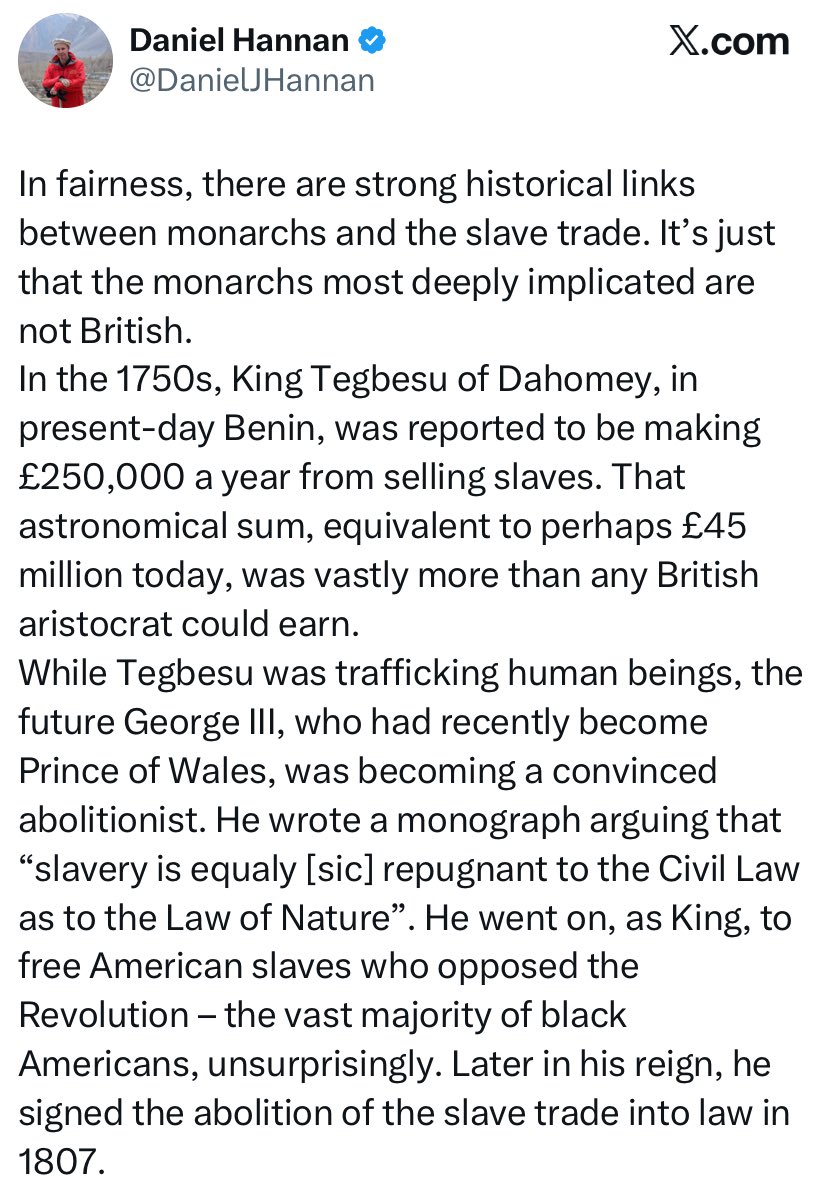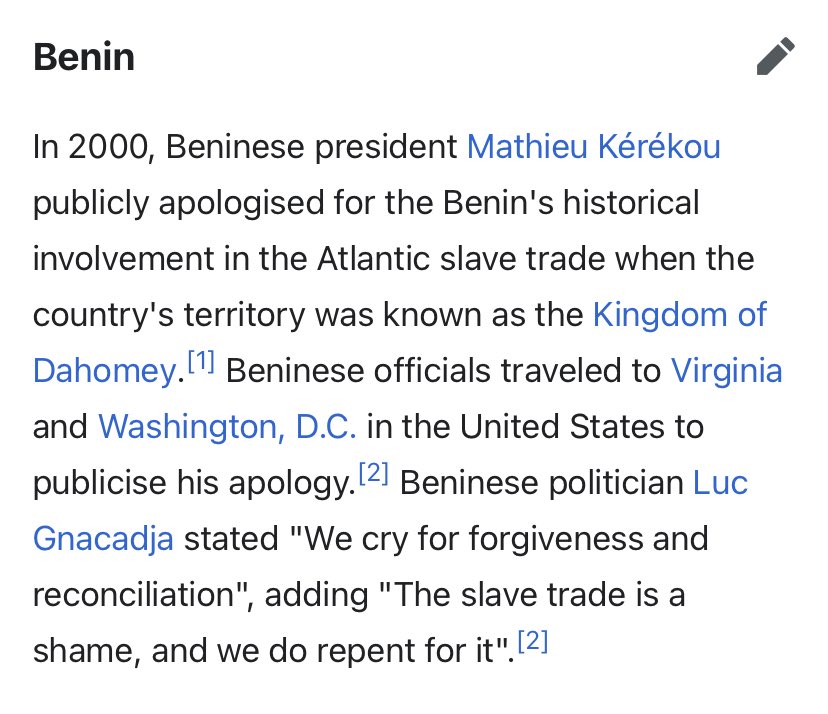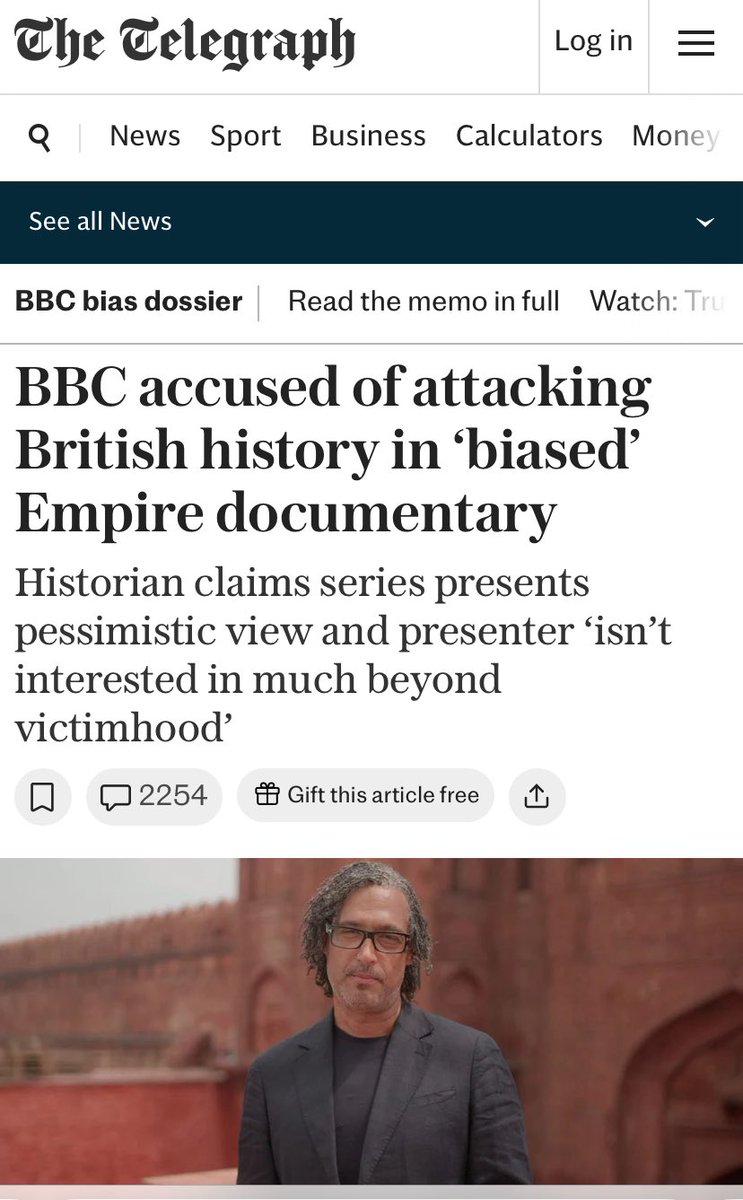
How to get URL link on X (Twitter) App





 1. They didn’t bother to watch it all because they knew how they were going to attack it regardless. Maybe no one will pick up in the fact that it doesn’t actually end with WWI but extends into the 1950s.
1. They didn’t bother to watch it all because they knew how they were going to attack it regardless. Maybe no one will pick up in the fact that it doesn’t actually end with WWI but extends into the 1950s. 



https://twitter.com/_historynerd/status/18938089469991201882/8 The aim is to diminish the scale of the atrocity involved in the trafficking of 12.5 million Africans to the Americas by subordinating it to the treatment of tens of thousands of Irish prisoners & indentured servants.

 2/ 9 The oldest, Charles Culliford Boz [Charley] Dickens set off for the East, intending to be a tea merchant. Inevitably this entailed an acquaintance with the Indian opium trade that financed Britain's tea imports.
2/ 9 The oldest, Charles Culliford Boz [Charley] Dickens set off for the East, intending to be a tea merchant. Inevitably this entailed an acquaintance with the Indian opium trade that financed Britain's tea imports. 


 2. Ever since its ’discovery’ of the New World, a fundamental schism, experienced by many around the world as rampant hypocrisy, has defined the modern West. Currently the West’s historic contradictions are unravelling, while Trump & Co. promise to hold them together.
2. Ever since its ’discovery’ of the New World, a fundamental schism, experienced by many around the world as rampant hypocrisy, has defined the modern West. Currently the West’s historic contradictions are unravelling, while Trump & Co. promise to hold them together. 

 It comprised three major geographical zones: the Atlantic world, Indian Ocean world and Settler colonial world. Each had its own dynamics, yet they were linked by projects and networks - e.g. commerce, governance, humanitarianism, racial ideology & diaspora.
It comprised three major geographical zones: the Atlantic world, Indian Ocean world and Settler colonial world. Each had its own dynamics, yet they were linked by projects and networks - e.g. commerce, governance, humanitarianism, racial ideology & diaspora.






 2/7 It was pivotal because of the way that some of those committed to the statue’s retention chose to respond to anti-racist activists’ demands for its removal:
2/7 It was pivotal because of the way that some of those committed to the statue’s retention chose to respond to anti-racist activists’ demands for its removal:



 2. No surprise that it adopts the line that these indefensible attacks were ultimately the consequence of liberal challenges to the social order and the “arrival year after year of large numbers of strangers”. historyreclaimed.co.uk/violent-disord…
2. No surprise that it adopts the line that these indefensible attacks were ultimately the consequence of liberal challenges to the social order and the “arrival year after year of large numbers of strangers”. historyreclaimed.co.uk/violent-disord…
